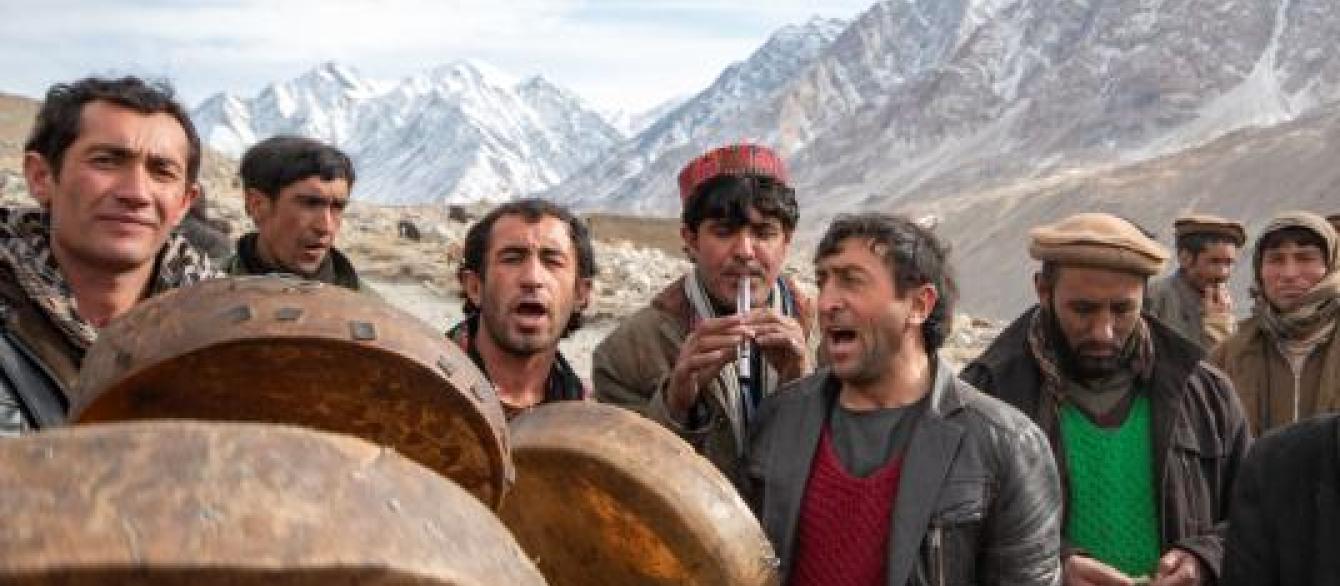Join us for a screening of the documentary "Two Poets and a River." Using the Oxus river — also called the Amu Darya — as a topos, this film explores themes of love and loss through the lives and musical poetry of two Wakhi musicians, Qurbonsho in Tajikistan and Daulatsho in Afghanistan. These two poet-singers share a common language and culture and yet remain separated by vicissitudes of the 19th-century Great Game in Central Asia. In a struggle for strategic control, the Wakhan homeland of the Wakhi people became a buffer zone between czarist Russia and the British Empire. The river Oxus, which became the border, ran right through its center. After the modern nation states of the U.S.S.R. and Afghanistan shored up their boundaries around 1930, the communities living along one side of the river were severed from their counterparts on the other. The condition of being separated by a river in the region has been the basis for poetry about the feeling of separation (Persian firāq) and grounds the poets’ discussions of love and loss in their own lives as well as in their musical arts. Harvard professor Richard K. Wolf shot and produced the film over two and a half years (over the period from 2012 to 2020) with the editorial collaboration of Qurbonsho and Daulatsho.
Following the screening, there will be time for questions for Prof. Wolf and Afghan musician Dawood Pazhman, whose work is drawn upon for the related Harvard course, "Music and Politics in Afghanistan and Central Asia" (Music 194R).
This event does not require registration.
About this film:
Two Poets and a River, 2021 (Documentary Educational Resources; Wakhi, Tajik, and Dari with English subtitles; 105 min.)
Speakers:
Richard K. Wolf, Professor of Music and of South Asian Studies, Harvard University, Film Director
Dawood Pazhman, Artist in Residence, Department of Music, Harvard University
Sponsorship
This event is sponsored by the Harvard Art Museums (with support from the Richard L. Menschel Endowment Fund), and co-sponsored by Harvard’s Department of Music, the Davis Center for Russian and Eurasian Studies, the Lakshmi Mittal and Family South Asia Institute and the Prince Alwaleed Bin Talal Islamic Studies Program.
Accessibility
The Davis Center for Russian and Eurasian Studies at Harvard University encourages persons with disabilities to participate in its programs and activities. If you anticipate needing any type of accommodation or have questions about the physical access provided, please contact us at 617-495-4037 or daviscenter@fas.harvard.edu in advance of your participation or visit. Requests for Sign Language interpreters and/or CART providers should be made at least two weeks in advance if possible. Please note that the Davis Center will make every effort to secure services but that services are subject to availability.




